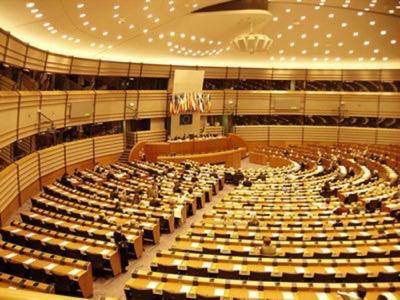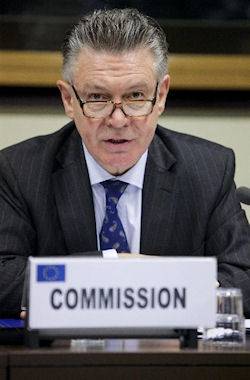In a move ostensibly to confirm the European Parliament’s opinion that the international Anti-Counterfeiting Trade Agreement is above board – but perhaps also to alleviate its own suspicions – E.U. Trade Commissioner Karel de Gucht has opted to refer the treaty to the Court of Justice (ECJ). While Comm. de Gucht expects his support of ACTA to be ratified, the Court’s decision could end up blocking enforcement of the treaty throughout the continent.

This even though 22 of the E.U.’s 27 member nations have already signed on to the treaty. Under the terms of the Treaty of Lisbon with which the E.U. was formed, the European Parliament must give consent to any treaty becoming law among its member nations. It will be holding public hearings on that very question next week.
“We are planning to ask Europe’s highest court to assess whether ACTA is incompatible – in any way – with the EU’s fundamental rights and freedoms, such as freedom of expression and information or data protection and the right to property in case of intellectual property,” reads a statement from Comm. de Gucht this morning from Brussels. “I believe the European Commission has a responsibility to provide our parliamentary representatives and the public at large with the most detailed and accurate information available. So, a referral will allow for Europe’s top court to independently clarify the legality of this agreement.”

At issue is whether enforcement of the treaty would put Internet service providers in the uncomfortable (and, as far as Europe is concerned, illegal) position of providing back-channel access to suspected IP thieves and pirates to content rights holders, especially in the entertainment industry. Also, the treaty may be interpreted as compelling governments to enforce means to block infringing users from accessing the Internet, or similarly to block ISPs from enabling themselves to be accessed by them. The European Commission had already endorsed ACTA.
But the treaty had not always been negotiated in the public light. As a result, citizens who are only just now becoming aware of its existence are skeptical why the treaty wasn’t made subject to judicial review prior to the endorsement.

In the wake of the historic SOPA/PIPA defeat in the U.S., European lawmakers are eager to stay on the right side of public opinion. At the same time, they can’t exactly be seen as backtracking on their existing stance. While the E.C. was on record in opposition to ACTA’s being negotiated in secret, it did not put up much of a fuss after negotiated drafts were made public, and the most potentially offending parts were stricken.
One of those removed parts would have facilitated so-called “three strikes laws,” which would bar individuals’ access to the Internet after three intellectual property-related offenses. In a statement last week, E.C. Vice President Viviane Reding reminded Europeans that she had a hand not only in getting that provision removed, but with inserting in its place a provision that would ensure it never re-emerge elsewhere.
“In spite of significant political pressure, I instead supported – in the name of the European Commission and in close alliance with the European Parliament – the inclusion of an Internet freedom provision in the final text of this legislation,” stated Comm. Reding. “Under this provision, ‘three-strikes laws,’ which could cut off Internet access without a prior fair and impartial procedure or without effective and timely judicial review, will certainly not become part of European law. This situation can and must not be changed by the ACTA agreement.”
The E.C. is the upper house of the E.U. legislature; Parliament is the lower house. According to Parliament, now that the E.C. has consented to ACTA, it cannot make changes to it. But it can decline its consent, the effect of which would be to nullify its enforcement, even among those member nations that have already signed.
Leading the ACTA debate in Parliament is MEP David Martin (U.K.), who issued this statement earlier today: “We will wait for the ECJ ruling before we draw conclusions, but an open political debate in the European Parliament is also necessary on the measures foreseen by ACTA. We must guarantee a good balance between intellectual property rights, which are fundamental for the European economy and job creation, and individual freedoms.”

















